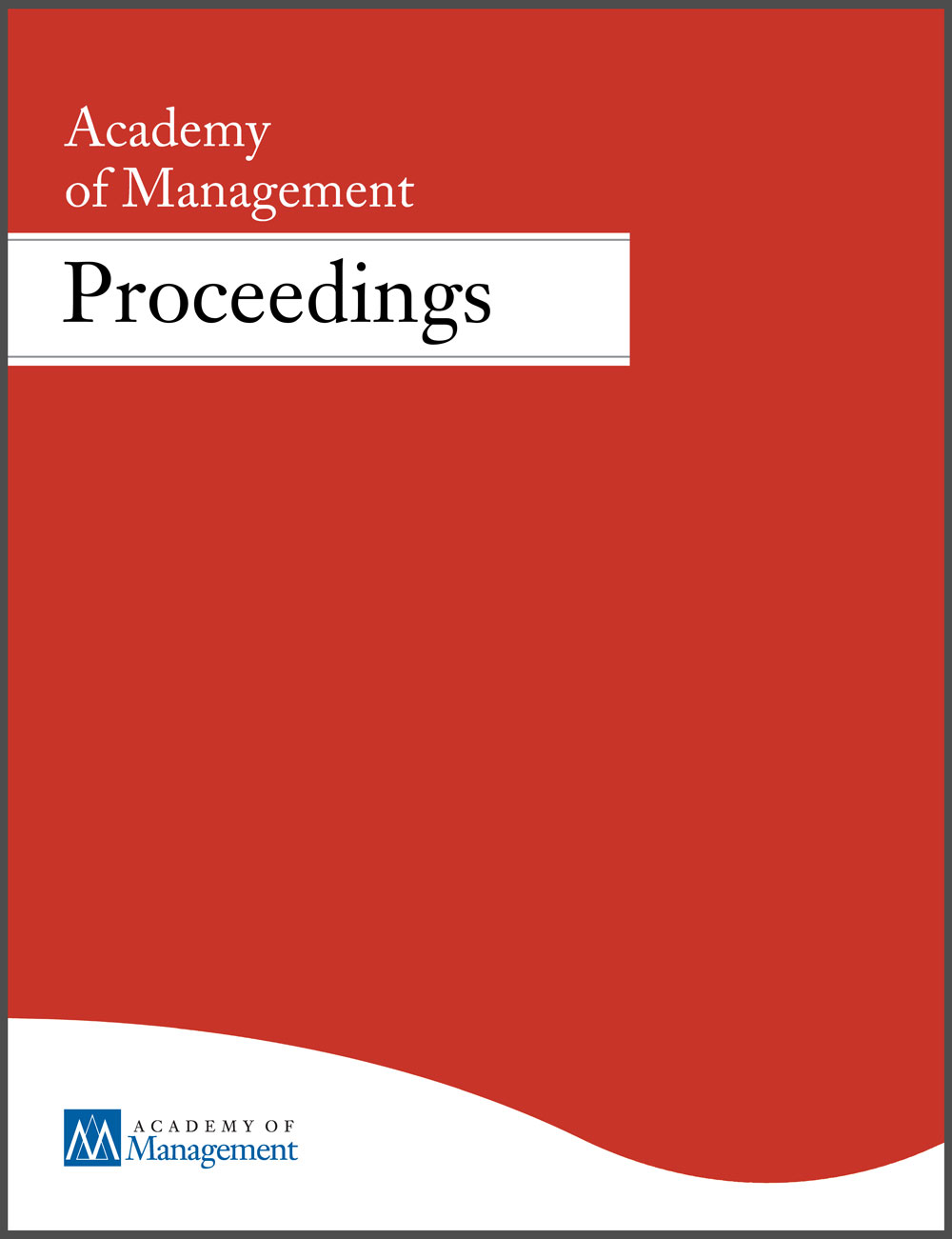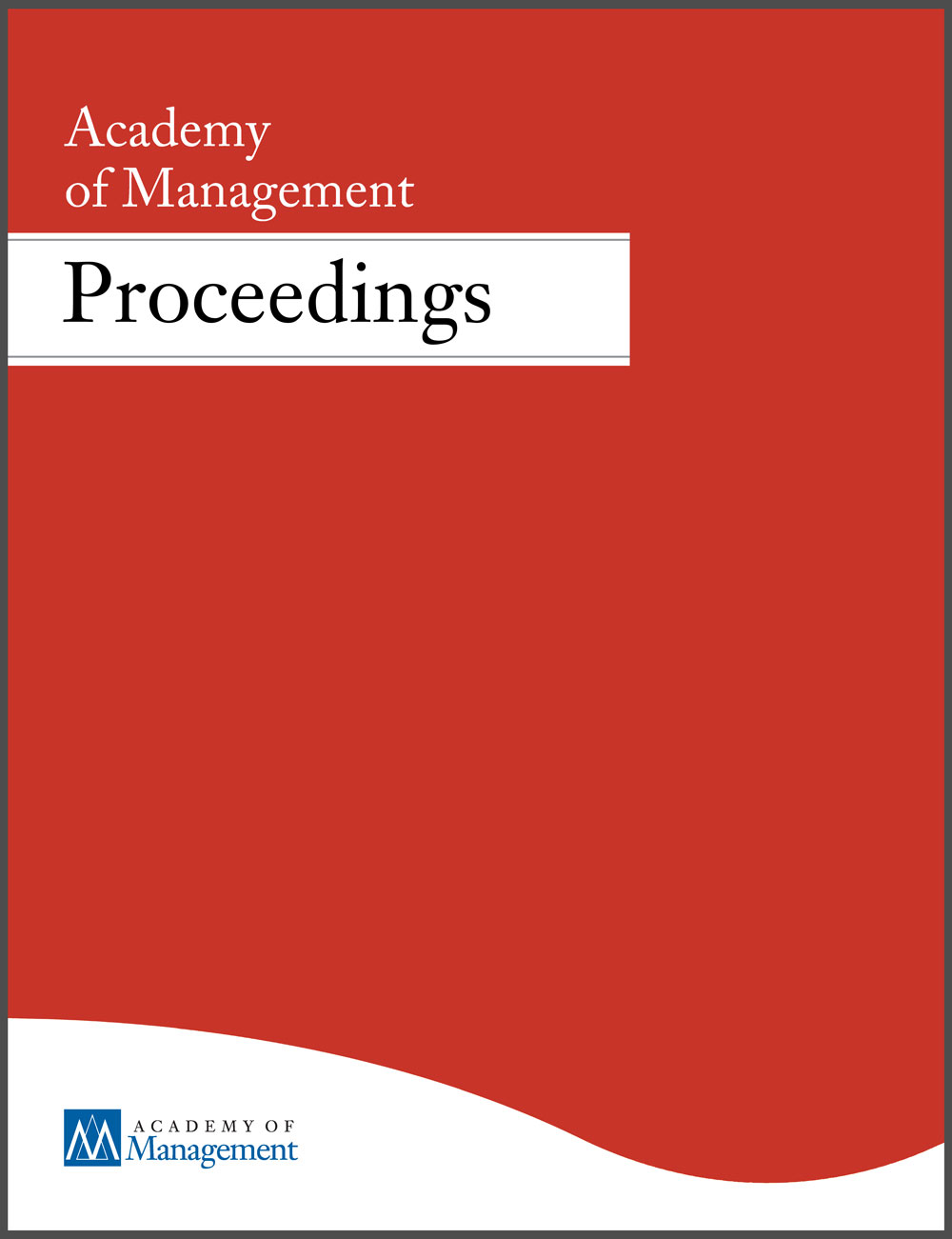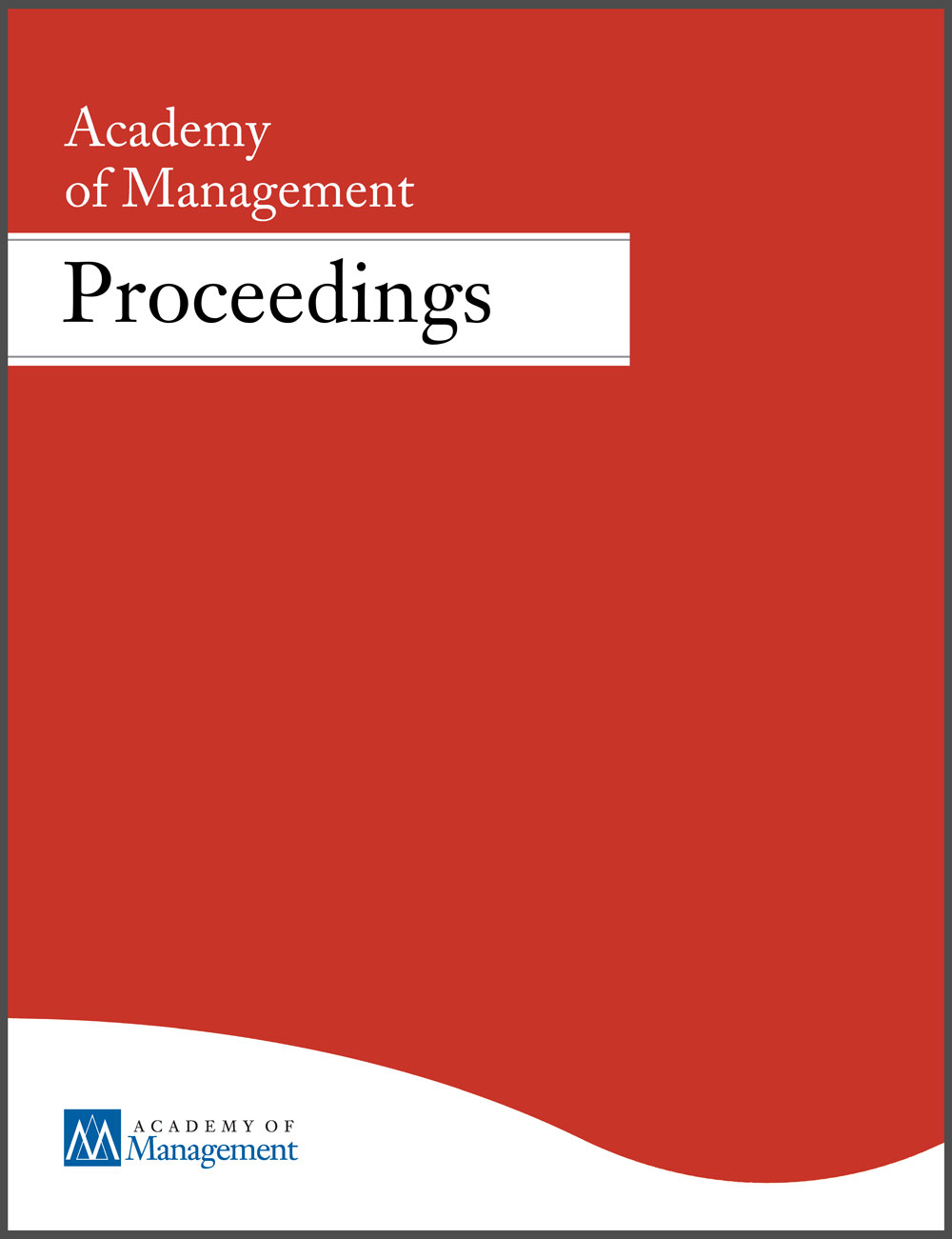Academic articles
Practitioner articles
Working papers
Books
Book chapters
Case studies
Other publications
Subject(s)
Strategy and general management; Technology, R&D management
Keyword(s)
Personality, inventive performance, search, knowledge production, innovation
The search for external knowledge increases inventive performance. We extend this established view by considering how an inventor’s personality is related to her inventive performance. Focusing on plasticity, a higher-order personality trait comprising openness to new experience as well as extraversion, we propose that plasticity is positively related to inventive performance. This effect can be decomposed in a direct effect (plasticity => performance) and an indirect mediated effect via its association to search behavior (plasticity => external search => performance). We test our theoretical predictions in a model of moderated mediation relying on a sample of 1,327 industrial inventors. A positive direct effect of plasticity on inventive performance can be identified across all inventors. The overall positive effect of external search, however, is more pronounced for inventors characterized by low levels of plasticity.
With permission of the Academy of Management
Volume
2020
ISSN (Online)
2151-6561
ISSN (Print)
0065-0668
Many organizations employ algorithms that learn from their members and then shape the way these individuals learn. Nevertheless, decades of research on organizational learning suggests that imperfect learning algorithms could sustain suboptimal beliefs that trap organizations indefinitely. To study potential algorithmic learning traps, we solve the underexplored theoretical properties of the March 1991 mutual learning model and demonstrate the conditions under which individuals should trust learning algorithms' recommendations. Our results show that the received wisdom regarding the benefit of slow learning and diversity does not hold when algorithms cannot identity accurate beliefs but follow the majority. The presence of non- discerning or even manipulated algorithms suggests that individuals should learn fast instead of slow to reduce the chance that algorithms learn the wrong, misleading lessons that would otherwise diffuse and contaminate everyone. Our exploitation of the March model generates novel insights that are increasingly relevant, thus promoting the model's generalization and making its beauty more robust.
With permission of the Academy of Management
Volume
2020
ISSN (Online)
2151-6561
ISSN (Print)
0065-0668
Subject(s)
Human resources management/organizational behavior
Broker behavior is a consequential, largely-uncharted topic; an exciting arena for future research. We know that success is associated with access to the brokerage opportunities provided by structural holes, but networks don’t act. What are the behaviors by which people convert structural hole opportunities into success? The symposium offers a propitious occasion to address some broad questions for the emerging behavioral generation of research on network brokerage: How much does the first generation of research on network structure and performance inform research on more (and less) productive broker behavior, and does it matter? What research methods have been more (and less) useful for exploring network broker behavior and why? With respect to what aspects of broker behavior, are we making more (or less) progress and why?
With permission of the Academy of Management
Volume
2020
ISSN (Online)
2151-6561
ISSN (Print)
0065-0668
Subject(s)
Human resources management/organizational behavior; Management sciences, decision sciences and quantitative methods
We develop a novel method that integrates techniques from machine learning with canonical concepts from network analysis in order to examine how the meaning of leadership has evolved over time. Using articles in Harvard Business Review from 1990 through 2019, we induce yearly semantic networks comprised of roles structurally equivalent to the role of leader. Such roles, from which leader derives meaning, vary in content from coach and colleague to commander and dictator. Yearly shifts in the structural equivalence of leader to clusters of thematically-linked roles reveals a decline in the degree to which leadership is associated with consultative activities and a corresponding rise in the extent to which a leader is understood to occupy a hierarchical position. Our analyses further reveal that the role of leader comes to eclipse the role of manager, measured through changes in pagerank centrality as well as betweenness centrality over the course of our panel. Implications for new research on leadership, culture, and networks are discussed."
With permission of the Academy of Management
Volume
2020
ISSN (Online)
2151-6561
ISSN (Print)
0065-0668
Subject(s)
Human resources management/organizational behavior
Keyword(s)
Error management
A major insight of research into organizational error is that there is a critical period between “hoping for better” and “too little too late”. Engaging in the active management of unfolding organizational errors before they evolve into crises (Pearson & Mitroff, 1993) becomes a strategic concern in itself – one that challenges classic approaches (Edmondson & Verdin, 2018; Giolito & Verdin, 2018). Recent research suggests that the management of organizational errors (e.g. Frese & Keith, 2015; Goodman et al., 2011; Lei, Naveh, & Novikov, 2016) is increasingly a responsibility for top executives, particularly in turbulent contexts where organizations devote increasing time and resources to experimentation. In this session, we turn to the responsibility of corporate boards in strategic error management, defined as the actions taken by organizational actors and that aim to disconnect these errors from strategic failure (Goodman et al., 2011; Hofmann & Frese, 2011; Giolito & Verdin, 2018). Many aspects of strategic failure can only be addressed and corrected by engaging in actions to minimize negative and maximize positive outcomes of the errors as they occur (Frese & Keith, 2015; Hofmann & Frese, 2011a). We assert that it is a core function for organizational actors to engage in and oversee these corrective actions, and that aspects of leadership, governance, and culture play an integral role in the capacity of an organization to respond to errors and avoid crises. Revisiting some of the basic insights of error management, this panel will explore the explicit responsibilities of the board in detecting, recognizing, and dealing with errors in organizations, especially those that affect their long-term success and viability. We will focus on how and when error management takes place and should take place at board level, and what interactive role stakeholders and institutions play in attenuating or magnifying the effects of the board’s behaviors and actions. We look to explore two parallel obligations at board level, both 1) the board’s responsibility for oversight of the error management capability of the organization, and 2) the responsibility for error management of the board’s own activities and functioning. Key questions addressed in this panel will revolve around: What should be the board’s effective functioning related to error management, as distinct from ad hoc crisis management capabilities, risk and compliance, and other frameworks and practices? What role does strategic error management play at the board level with respect to enhancing sustainability, both of the firm itself and of its environment – or even with respect to “planetary boundaries” (Whiteman, Walker & Perego, 2013)? How can error management practice improve the board’s capabilities to offset an organization’s slow drift towards obsolescence or failure? How can we restructure board and governance systems to better “see” the bigger picture, both in terms of major failure and in terms of opportunities missed? How can error management – or a “strategy as learning” perspective (Edmondson & Verdin, 2017, 2018) – help boards catch and address unwanted deviations from strategic goals? Our panel of highly experienced scholars represents several major research streams, as well as organizational and governance practice, with the aim of fostering a rich trans-disciplinary discussion. We plan to reserve ample room for dialogue with the audience, of which practitioners and consultants will hopefully form a significant part.
With permission of the Academy of Management
Volume
2020
ISSN (Online)
2151-6561
ISSN (Print)
0065-0668
Subject(s)
Marketing; Strategy and general management
Keyword(s)
Design thinking, innovation, emerging ideas, luxury strategy, marketing & communication
Since its inception, the luxury industry has been a growth story. Product extensions, store network expansion, entering growth markets – especially China and digital commerce – have been the drivers of the last years. Business cycles? There were some downturns during the SARS epidemic and the financial market crisis in 2009. Soon after, growth resumed at an even accelerated rate, driven by many more consumers craving luxury goods. Few thought that the diversification in terms of products, geographies, sectors, and consumers could be affected by economic downturns. All that is needed is a constant growth of the luxury clientele and their disposable incomes for marketers to turn them into customers of the brand.
Subject(s)
Strategy and general management; Technology, R&D management
Keyword(s)
open innovation, management, leadership
Subject(s)
Economics, politics and business environment; Health and environment
Keyword(s)
Coronavirus, globalization, universal basic income, organizational learning, European Union
Coronavirus has been diffused to nearly every country on Earth within a few months, and has unfortunately taken the lives of over 400,000 people globally. This article discusses its impact on global economy and globalization, including a pan-virus-free bubble, the future of European Union, the introduction of universal basic income, and how to prepare for the next crisis.
Journal Pages
60–62
Subject(s)
Technology, R&D management
Keyword(s)
Cybersecurity, Cybersicherheit, hackback
The article analyses the proposed hack back/active cyber defence legislation from the perspective of international law. It concludes that while such a policy would not be contrary to Germany's obligations under international law per se, it would be hard to justify in the majority of cases. This is because the remedies self-defence and countermeasures will likely be unavailable due to the persistent problem of timely attribution of cyber operations, and the requirements of the alternative plea of necessity will rarely be met in practice.
Subject(s)
Strategy and general management; Technology, R&D management
Prior research suggests that patents by mobile inventors are at higher risk of generating spillovers between departed and hiring firms. Despite extensive research on how inter-firm inventor mobility affects firms' learning and innovation, little is known about how firms protect their existing intellectual property in the face of inter-firm inventor mobility. We argue that one main way in which firms try to prevent others from appropriating the value of these inventions is by extending the validity of mobile inventors' patents. We derive a set of hypotheses consistent with this argument and test them using longitudinal data on four major American semiconductor firms. Our analyses show that, as hypothesized, both departed and hiring firms are more likely to extend the validity of mobile inventors' patents than is the case for the patents of other, non-mobile inventors. Furthermore, in line with the view that firms use patent renewal to deter other firms from appropriating mobile inventors' knowledge, we find this effect to be stronger where the risks of spillovers are most intense. Our findings extend prior literature by explicating the role of patent renewal as a strategic deterrent against intellectual property appropriation in the face of inter-firm inventor mobility.
With permission of Emerald
Secondary Title
Advances in Strategic Management
Pages
245–265
ISBN
978-1-78973-550-5
ISBN (Online)
978-1-78973-549-9





